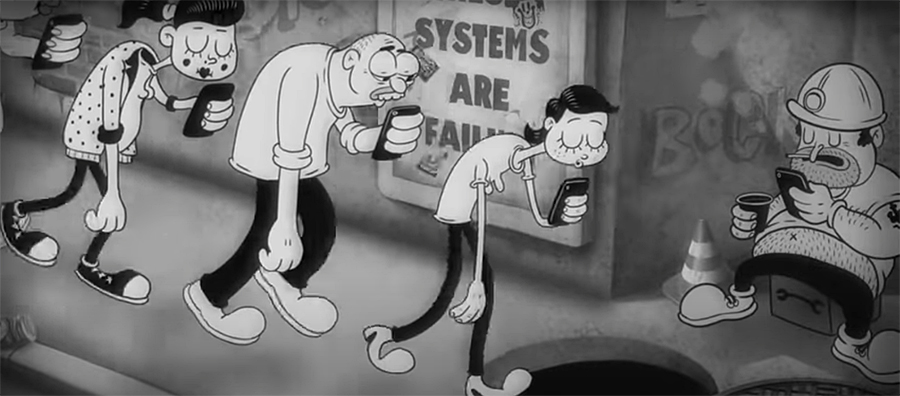
I found myself scurrying around this week trying to keep ahead of technology. Keeping ahead of technology, actually, was impossible. The fact is I was doing technology’s bidding in order to keep my life in order, a situation in which I, and most of us, find ourselves regularly.
Rather than serving humanity, technology now demands we serve it. In a fundamental way, what was created as a tool to assist us has become our master; in a turnabout, we have become enslaved to technology.
Let me explain. Like most of us, I have a computer and a printer; they are supposed to work seamlessly with each other. You might recall the notion of “plug and play,” which describes the idea that a device like a printer should simply get connected to a computer automatically and be ready to crank out printed pages. Fuggedaboutit. Those days are over. Installing the HP all-in-one printer we bought required an hour of time provided by Kevin, our super-competent computer consultant, and even he found it challenging. Between the router, the software and the hardware, getting the damn printer to communicate with the computer was like pulling teeth, $75 worth.
Then there was the key to our car. We own a 2010 Volkswagen Jetta, our only car, but a dependable one. Dependable, that is, if you don’t lose the keys. So it was that when one of our two keys got lost, I found myself in the position of needing to replace it. German carmakers, it turns out, are obsessively paranoid about auto security. The key for the car is not a key as we think of it; rather, it’s an encrypted, electronic digital device that must…wait for it…be programmed to work. The days of getting a car key “cut” at the locksmith are over. To get a replacement required an hour’s drive to a car key specialist who for a mere $260 took forty-five minutes to properly program a new, encrypted “key” for our car.
In the early 1990s, well before the introduction of the Internet, cell phones, or social media, New York University Professor Neil Postman wrote about the ways in which technology alters culture in his book, Technopoly. He explained that digital and electronic technology does not merely alter culture, but replaces it, effectively creating a new technological culture, which he called technopoly. Appropriating cultural forms of the past through image branding helps overcome consumer resistance as technopoly surreptitiously inserts itself within the actions of everyday life, increasingly demanding that people serve its needs, instead of vice-a-versa.
All new cultural innovations can have this effect; the challenge is to see this process in operation instead of simply rushing to adopt the latest and the greatest. Originally a scientific tool, digital technology’s entry into consumer products created an unholy alliance between tech and commerce. Our economy has also become enslaved to technology, which with the development of cyber currencies like Bitcoin is on the verge of usurping financial transactions from the dollar.
Increasingly sophisticated digital algorithms now predict and influence buying, voting and relationships. The intrusion of technopoly is racing full-speed ahead and consolidating its gains without due consideration of its long-term effects, while humanity remains fixed in our slower-speed, biological, analog reality. This won’t end well.
we have the same hp printer that linked easily to our local network and will print from any device, including remote phone call-in. also accepts direct plugin if we like, but the net is better.
wally
Lucky you!